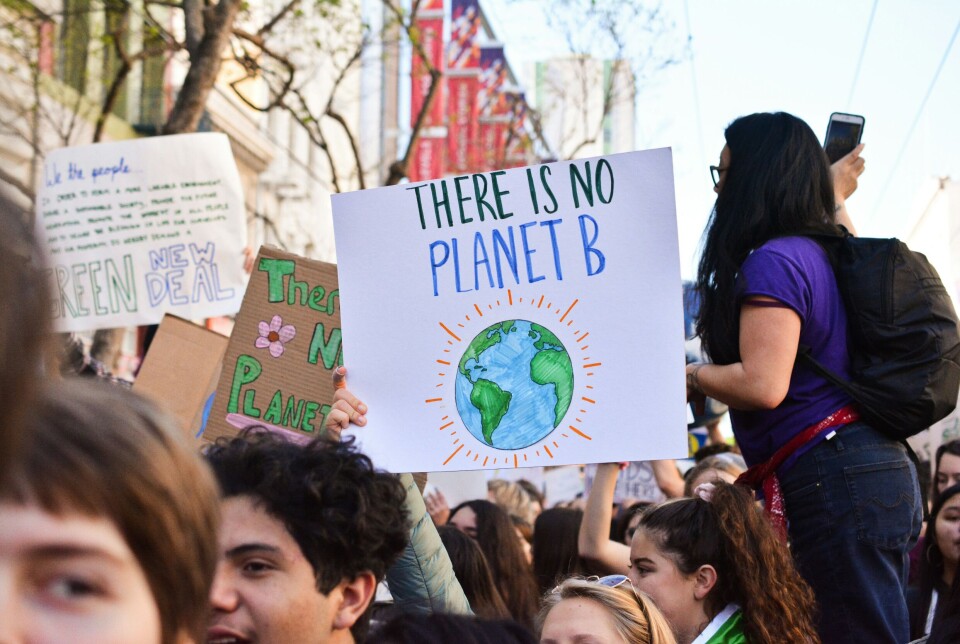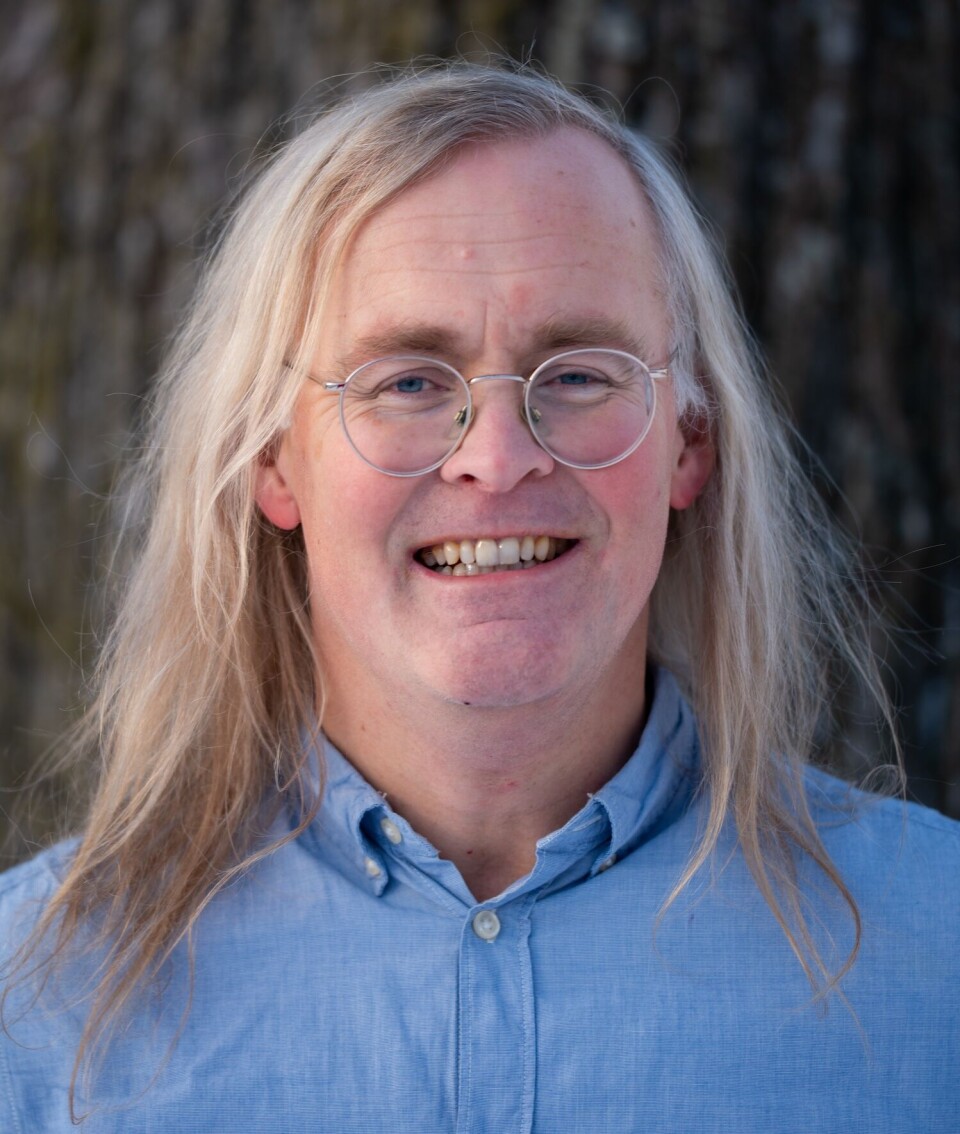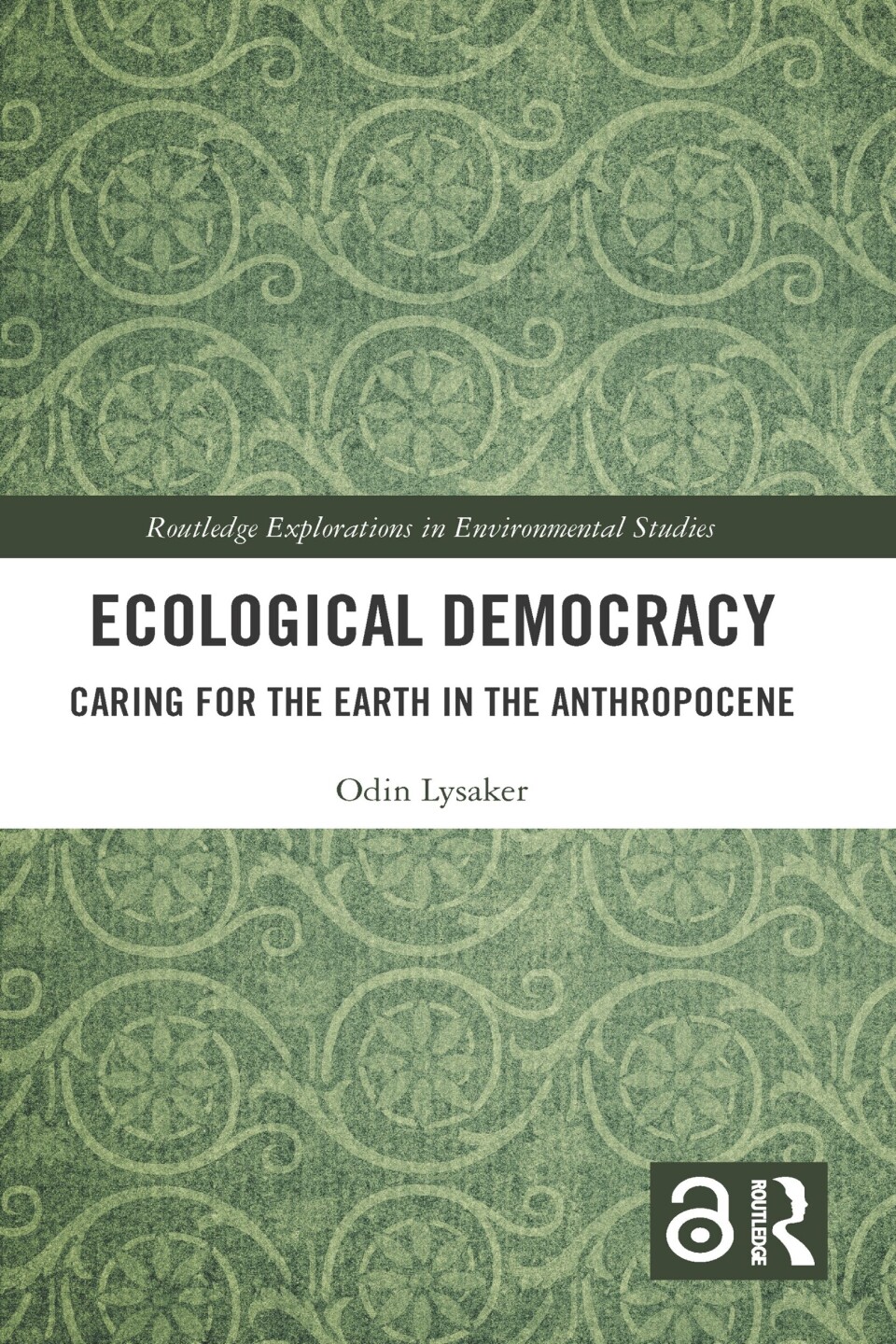THIS CONTENT IS BROUGHT TO YOU BY THE University of Agder - read more

“Today's democracy cannot save us from the climate crisis”
We need a third alternative between democracy and eco-fascism, according to philosopher Odin Lysaker. In a new book, he advocates ecological love.
Whether we acknowledge it or not, we are facing an ecological crisis. The planet is warming, sea levels are rising, and weather patterns are becoming more severe.
But are we using all the tools available to us in a democracy to address the issue?
No, according to philosopher Odin Lysaker. He is a professor at the University of Agder and author of the book Ecological Democracy. There, he outlines – with cautious optimism – ways out of the predicament humanity has put itself in.
Non-representative democracy

“There is a mismatch between the extent of the nature and climate crisis and how many voices are being heard in democratic elections. Small island nations in the Pacific, where sea levels are rising, are not being heard. Neither are children and young people under the age of 18. Refugees without citizenship cannot express their opinions,” Lysaker says.
He argues that our representative democracy does not give sufficient representation. He believes that we should think beyond our usual frameworks when considering which voices are not being heard.
“The rivers that are being acidified and the air that is being polluted, for instance, also have their perspectives. It may sound cryptic to some, but it comes down to recognising how we're all affected by pollution and figuring out a way to give everyone a voice, from endangered species to vulnerable groups,” says Lysaker.
Citizen councils can create meeting places
The concept of ‘ecological democracy’ in the book title has roots that go back several decades. It started as an attempt to combine Arne Næss' deep ecology with Jürgen Habermas' theories of democracy.
“When faced with nature and climate issues, we often encounter the argument that we should avoid eco-fascism, where a strong state intervenes and overrides democracy. Surprisingly few politicians are aware that these questions have been discussed for many decades by renowned political scientists,” Lysaker says.
He believes that citizen councils can supplement the right to vote. This would serve to strengthen democracy and create more meeting places.

“The members of the council could be chosen by lottery, across political divides, gender, and age," he says.
Lysaker adds that this approach could bring together the exact individuals needed to foster change, encouraging them to genuinely consider each other's perspectives and engage in mutual learning.
Emotional involvement
In his book, Lysaker uses the concept of ecological love as a common thread.
“Everything that exists has intrinsic value and should be protected just like us humans. Ecological love is one way of practicing this ideal. It's a love for everything that exists,” says Lysaker.
The philosopher believes that by practicing ecological love, it may be easier to get emotionally involved and to open up for political action.
“We should not think of emotions as something to be expressed only at home. Emotions are also related to politics. We are ourselves all the time, with all our senses and emotions,” he adds.
The first step towards developing such love is to pause, according to the philosopher.
“It's important to sit down, breathe out, and slow down. Go outside into nature, touch the trees, walk backwards into the water. Have concrete experiences of being greeted by nature and being there together,” he says.
Reference:
Lysaker, O. Ecological Democracy, Caring for the Earth in the Anthropocene, Routledge, 2023. ISBN: 9781003305842
———
Read the Norwegian version of this article on forskning.no

This content is paid for and presented by the University of Agder
This content is created by the University of Agder's communication staff, who use this platform to communicate science and share results from research with the public. The University of Agder is one of more than 80 owners of ScienceNorway.no. Read more here.
More content from the University of Agder:
-
Study: "Young people take Paracetamol and Ibuprofen for anxiety, depression, and physical pain"
-
Research paved the way for better maths courses for multicultural student teachers
-
The law protects the students. What about the teachers?
-
This researcher has helped more economics students pass their maths exams
-
There are many cases of fathers and sons both reaching elite level in football. Why is that?
-
How we used plants to protect ourselves from evil




































